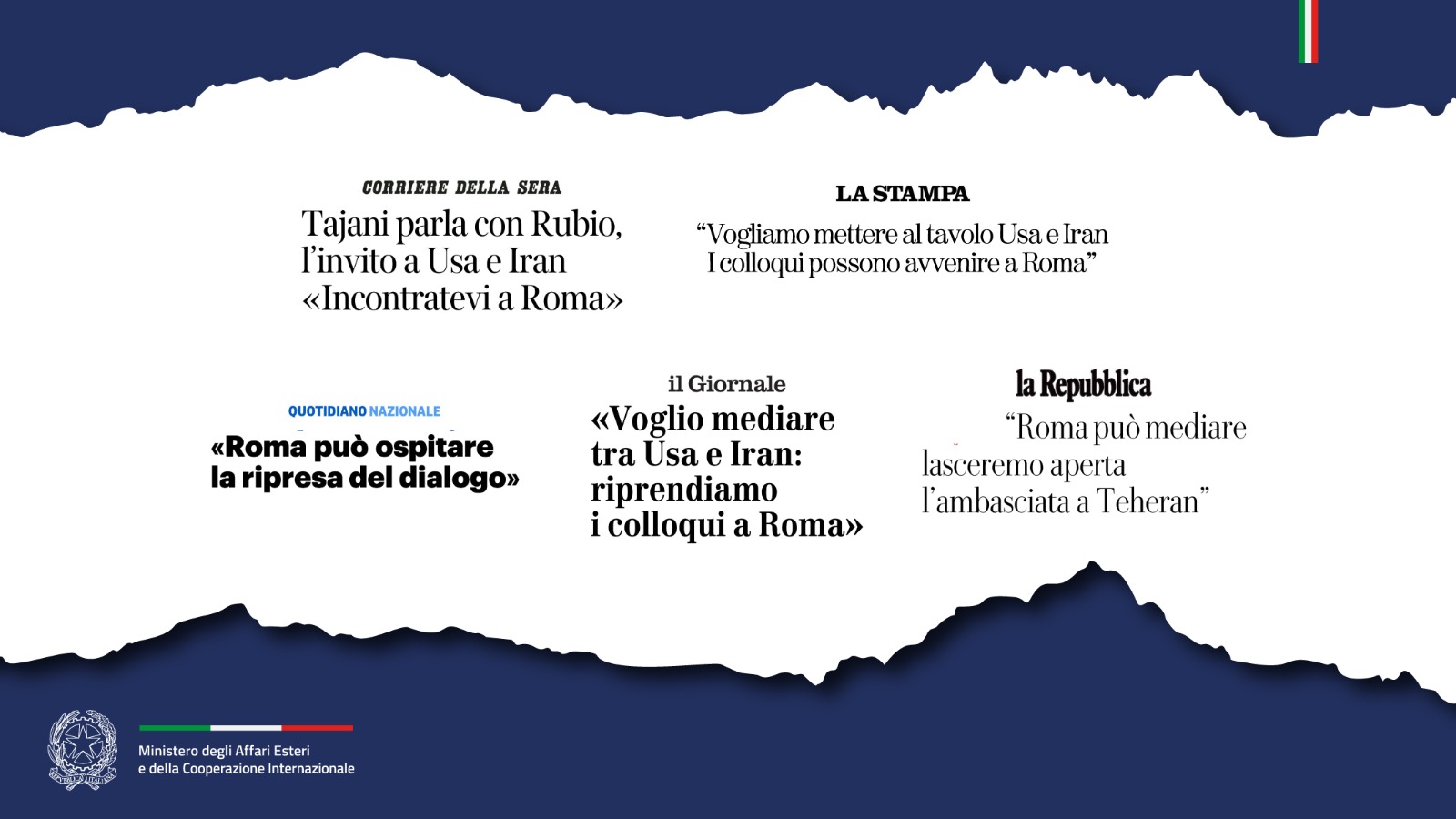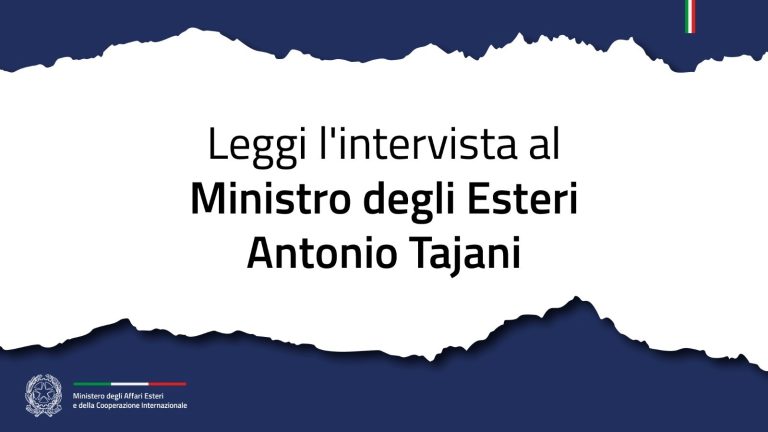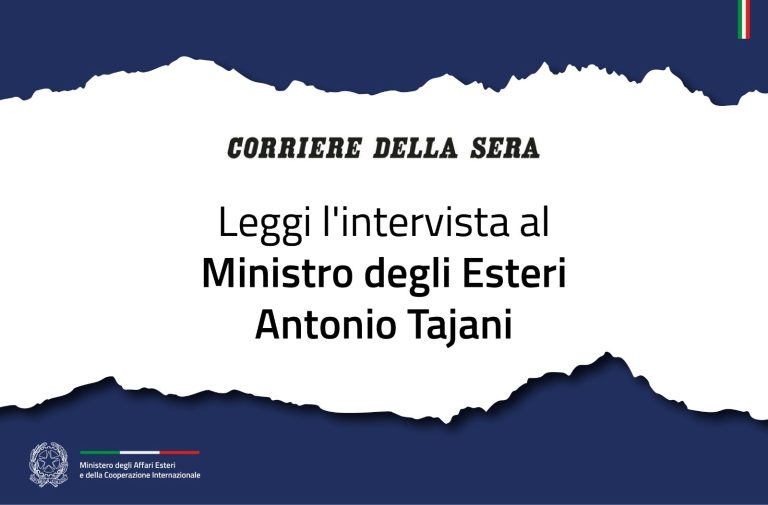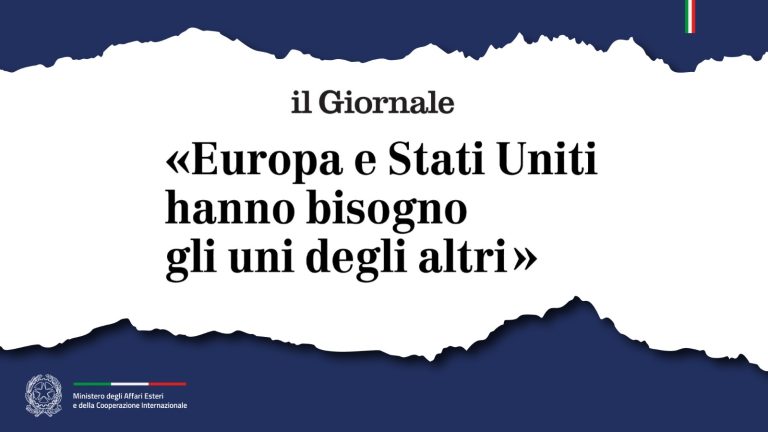ROME « There are 50,000 Italians living in the large area between Iran, Iraq, Israel, Saudi Arabia, Qatar, Bahrain… And right now we also need to think about their safety.” It is seven in the evening of another nightmare day, with the US bombing of Iran less than twenty-four hours ago. The Minister of Foreign Affairs, Antonio Tajani, has just finished the video conference meeting at the Foreign Ministry with all the ambassadors in the countries affected by the conflict, including Russia and China. He also spoke with the American Secretary of State, Marco Rubio, and is now trying to get in touch with Iranian Foreign Minister Araghchi, who is busy in Moscow.
The call for both is already there: “Meet in Rome.” And these are not empty words. The Foreign Minister said: “Before last night’s bombs, the United States and Iran had already spoken twice in Rome. We can try a third time. The important thing is that Iran and the United States return to the negotiating table as soon as possible without intermediaries. That Minister Araghchi gets in touch with the United States. In the meantime, however, we need to convince Iran not to respond, not to attack US bases, to avoid reckless reactions in order to prevent an escalation. De-escalation needs to be ensured in every way possible”.
Because in the meantime, news also arrives of a severe attack in Damascus against Christians. Minister Tajani called the Apostolic Nuncio in Syria, Cardinal Mario Zenari, and the Italian ambassador, Stefano Ravagnan, to get information: “It does not seem to be an action connected to what happened between the United States and Iran, but it is too early to say. Daesh is certainly reorganizing there. The risk of terrorism unfortunately is always there; our country is in any case already strengthening its defences”.
The Minister is exhausted. He woke up at dawn yesterday, too, because like ten days ago, after the attacks in Israel, unfortunately another phone call came from Iran and it was again the Italian ambassador Paola Amadei who announced this time the B2 bombs. Italy, like France, was not informed of the attack by the United States, but Minister Tajani said that “it was in the air”. The “intelligence” work of the Italian ambassador to Tel Aviv, Luca Ferrari, was crucial over the last three days – as reported to the Corriere della Sera.
Yet President Trump had said, just the day before, that he would give Iran additional 15 days before intervening. And now, once again, with the bombers back at base, the United States is assuring that there will be no more attacks. But can we trust it? Minister Tajani smiled imperceptibly: “I am not a soothsayer, if the Americans say something I trust them…”. No US plane, however, took off from the American bases in Italy the other night. He cut short: “We have not received any requests.”
But he is also now worried about the fate of the Strait of Hormuz: will Iran close it to world trade? The Minister replied: “I do not think it would be advantageous for them or even for China”, alluding to Iran’s good relations with China, which has officially condemned the US attack. The Minister concluded sceptically: “China and Russia condemn the attack, but these are political positions, I do not think they are really intending to make any kind of intervention.”
A Sunday spent keeping constantly in contact with the Crisis Unit to ensure the arrival in Verona, during the night, of 122 Italians returning, via Egypt, from Jerusalem and Tel Aviv and of 57 of our compatriots who, in two groups, via Baku have already left Iran or are about to do so (Minister Tajani clarified. “Less than 100 remain there, but do not call it an evacuation, our embassy remains open”).
Today in Brussels there is the meeting of EU Foreign Ministers, and tomorrow in The Hague there will be the NATO Summit. The main topic on the agenda will obviously be the bombs on Tehran and the still open question of Gaza. Minister Tajani did not shy away and said clearly: «Gaza needs a ceasefire, even before the liberation of the Israeli hostages. At one point the goal seemed possible to reach, but then Hamas blew it all up again. At the moment the truth is that only the United States can convince Israel to stop the operations. What is certain, however, is that Hamas cannot lead the united Palestine of the future.”
And what about Europe? Is it really irrelevant? “At this juncture we need a qualitative leap forward, there is no doubt about it. We need to change the institutional structures. Because the problem is that all Member States should take action in a single direction, always for the collective interest, for Europe’s interest. Many countries, instead, take action alone, they do so for themselves, for their own benefit. Prime Minister Giorgia Meloni, for example, did go to President Trump to talk about tariffs, but she did so in the interest of all of Europe, not just her country.”





